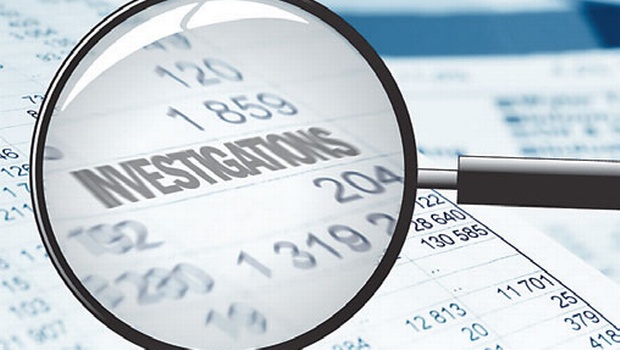FORENSIC AUDITING
The Foundation Stones for balanced success are honesty, character, integrity, faith and loyalty were the words of Bob Marley
Forensic auditing is a rapidly growing area of accounting concerned with the detection and prevention of financial fraud and white-collar criminal activities and as experts put it, this method of auditing is not just gaining prominence but its methods are changing fast as well. George A. Manning in his book “Financial Investigation and Forensic auditing” defines Forensic auditing as the science of gathering and presenting financial information in a form that will be accepted in jurisprudence against perpetrators of economic crimes. Thus, forensic auditing is the use of accounting for legal purposes. The integration of accounting, auditing, and investigative skills yields this specialty which focuses very closely on detecting or preventing accounting fraud.
“Real integrity is doing the right thing, knowing that nobody’s going to know whether you did it or not.”- Oprah Winfrey
Nevertheless, the same is very rarely in practice and this is not surprising given how the incidence of corporate fraud is on the rise. Un-official estimates value the practice at Rs 400-500 cr. annually. Investigations and risk consulting firm Kroll unearthed in a recent survey that 69% of companies studied were affected by fraud in FY15. Not surprisingly, the financial sector finds itself most vulnerable. As SandeepDhupia, head of KPMG’s forensic services in India, explains, this is due to misuse of technology despite the presence of a strong regulator.
Data released by the RBI show that public sector banks lost money to the tune of Rs 8,734 cr. in the last three years on account of loans (personal, housing, corporate and others) disbursed against fake documents.
Seven big guys in particular, crimes are of all shades — theft of physical assets, theft of information, corruption and bribery, internal financial fraud, vendor fraud, management conflict of interest and regulatory breach.
Forensic auditing has become an indispensable tool for investigation and prevention of frauds. Be it stock market, bank or cyber. With India being ranked as the 76th most corrupt nation for the year 2015, the needs for forensic auditors become all the more profound and the utilization of specialized investigative skills in carrying out an inquiry conducted in such a manner will always have application to a court of law. Growing cyber-crimes, failure of regulators to track the security scams, series 101 of co-operative banks bursting – are all pinpointing the need of forensic auditing, irrespective of whether we understand the need or not and by and large this area is dominated by the big four consultancy firms Deloitte, KPMG, Price Water House Coopers and Ernst and Young.
In Indian context, history of investigative accounting goes back to ancient times of Mauryan Dynasty. The famous Arthashasthra mentions the prominent forty ways of embezzlement. It says an accountant look at the numbers but a Forensic auditor needs to look behind the numbers. They are to look beyond the numbers and deal with the business realities of the situation.
This is perhaps and most certainly why CAs or CMAs are best suited due to their financial acumen acquired during their rigorous training which can be further honed by introducing post qualification degree or diploma in Investigating and Forensic auditing and getting a legal recognition as Forensic auditing Expert to handle the investigation of financial crimes and give expert testimony.
Forensic auditing covers a wide range of operations of which fraud examination is a small part where it is most prevalent.
Over the years, they have come to be known as what is called “bloodhounds of book keeping”. They hound for the conclusive evidences. While external audits reveal deliberate misstatements, Forensic Accountants find out the misstatements deliberately.
It is about the most important quality a person possesses: the ability to think. There is no book that tells you how to do a forensic investigation. Be it about solving a puzzle or peeling an onion. It takes creativity. The nature of crime is complicated and issues such as conflicts of interests, code-of-conduct violations and regulatory non-compliance require a strong working knowledge of the sector.
Kroll report showed India was well above the average when it came to most crimes. “Companies need to avoid accepting that fraud is just a normal part of business” More companies are waking up to the fact that corporate offences can’t be wished away. Within these groups, there may be further sub-specializations: some forensic auditors may, for example, just specialize in insurance claims/personal injury claims/construction/fraud/royalty audits.
Forensic auditing is involved in recovering proceeds of crime and in relation to confiscation proceedings concerning actual or assumed proceeds of crime or money laundering. In the United Kingdom, relevant legislation is contained in the Proceeds of Crime Act 2002. In India there is a separate breed of forensic auditors called Certified Forensic auditing Professionals.
Forensic auditors utilize an understanding of business information and financial reporting systems, AS and SAs, evidence gathering and investigative techniques, and litigation processes and procedures to perform their work. In cases involving significant amounts of data, the present-day forensic auditor has technology at his disposal to sort, analyse and even quantify and stratify results through various techniques.
We’ve got Benford’s Law that determines whether variables under study are a case of unintentional errors or intentional con and any such variable is subjected to a detailed scrutiny.
Then we have theory of relative size factor that highlights all unusual fluctuations. These records or fields need to relate to other variables or factors, thus establishing the truth.
Then we have Data mining technique that involves “pattern matching” algorithm to ‘extract’ any rare or suspicious cases.
Forensic audits also play as fraud deterrence engagements, and assist in investment analyst research. They make no assumption of management integrity show less concerns for the arithmetical accuracy have nothing to do with the Accounting or Assurance standards but are keen on exposing any possibility of hoax. In fact, forensic audit has begun to have other laws and acts in its favour to lend out help. For example section 157 C.R.P.C; section 17, 18 of Prevention of Corruption Act; Section 6 of The Bankers Books Evidence Act; Section 78 of Information Technology Act; Section 209A, 227 of the Companies Act, 1956 wherein the Court or Police may require the skills of Forensic auditors while inspecting any books in so far as related to the accounts of an accused.
Forensic auditors may see and carefully examine the accounts and balance sheets and use his skills to give expert opinion. This finds place in for example s.45, s.118 of Indian Evidence Act; s.293 of C.R.P.C.
And of course, it’s inevitable presence in the Companies Auditor’s Report
Order, 2003, makes it all the more important.
Subterfuge like the stamp paper scam, 2G Spectrum, the chopper ordeal and the unforgettable Adarsh housing society scam where in the amount shamed has still not been determined have taken us through rough times. It is in the face of such dire situations that one needs to look beyond the numbers and grasp the substance of the situation. Forensic auditing goes far and beyond in shredding the veil and shedding light on the grim truth behind such conspiracies.
One of the ongoing audit examples would be The Finance Ministry ordering a forensic audit of Dena Bank and Oriental Bank of Commerce after their Mumbai-based branches supposedly misappropriated funds worth Rs. 437 cr., mobilized through fixed deposits.
Professional services firm KPMG in India has been given the mandate to undertake forensic investigations, says the sources close to the development.
Although the developments are separate ones and took place at different times, a common feature could be that they centred on mobilizing deposits: fixed deposits/bulk deposits. The incidents have again brought to the fore the weak risk management systems in public sector.
Whatever happens in days to come, let no one forget the words of Mahatma Gandhi as he said, “In a room where people unanimously maintain a conspiracy of silence, one word of truth sounds like a pistol shot”. Nothing will be hidden for long because now, our weapons are strong.


